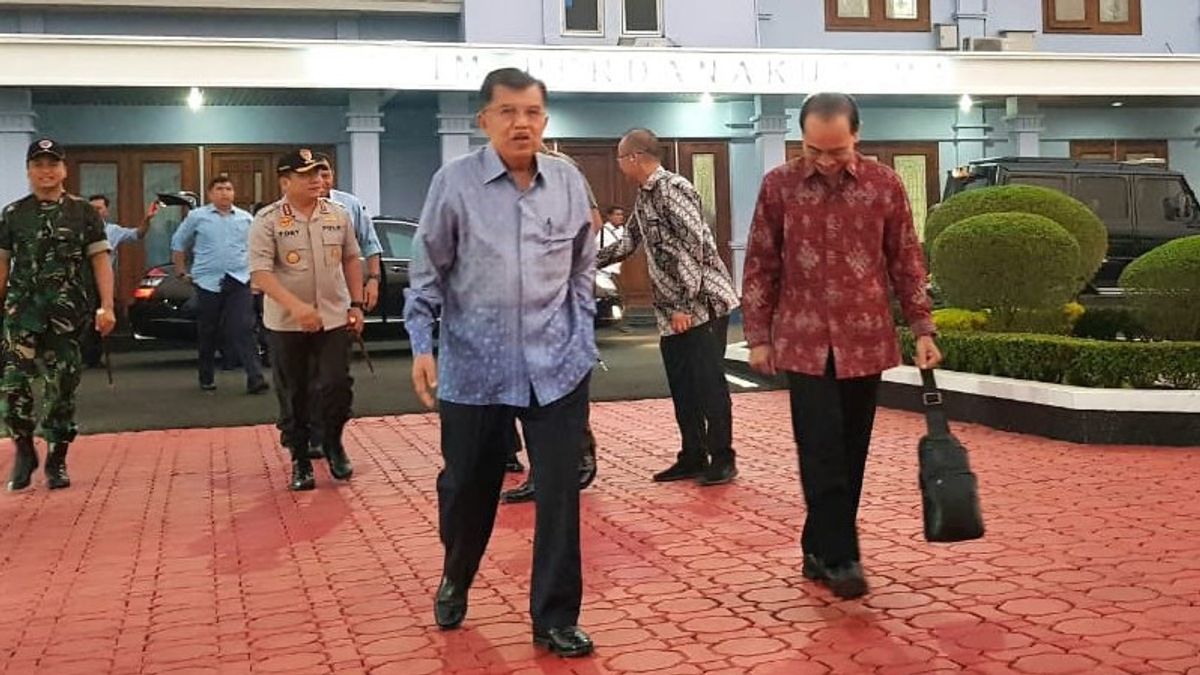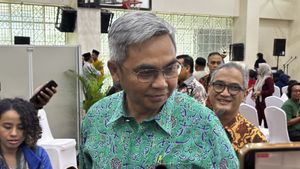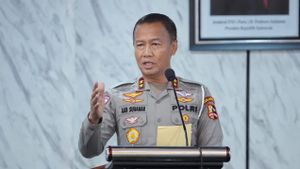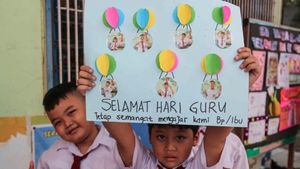JAKARTA - Chairman of the Indonesian Red Cross (PMI) Jusuf Kalla stated that social assistance for people affected by the COVID-19 pandemic should be in the form of cash or direct cash assistance (BLT) only.
This is because giving money directly is considered to be able to help the surrounding economy and increase people's purchasing power.
"People have decreased purchasing power, so their purchasing power must be increased. By giving them direct cash assistance, cash. So that they buy something. For BLT, in the area concerned can live. Buying rice in stalls there, maybe buying fish," said JK in a Webinar discussion, Tuesday, May 19.
According to the 12th Vice President, he suspects that if social assistance in the midst of the COVID-19 pandemic is only in the form of basic necessities, not all of the community's needs may not be fulfilled.
"Maybe he doesn't need wheat flour, maybe he doesn't need sugar but he needs rice, what does he need (adjusting his needs, ed)," he explained.
So, he considered that the community should only be given cash assistance. Moreover, based on his experience in 2005, BLT distribution was usually faster than the distribution of basic necessities.
At that time, said JK, giving BLT to underprivileged people in various regions in Indonesia could be completed within a month.
He assessed that this social assistance problem must be resolved immediately in the midst of this pandemic. Because, according to him, people can remain disciplined at home just as the government recommends when their needs are guaranteed. Moreover, currently many lower class people are affected.
"Need BLT immediately, people who do not work, people can eat and so on. So discipline is two, there are sanctions and there is government assistance to live a life, to be in society," said JK.
Is it true that only BLT is needed by the community?Responding to this, the Economist of the Institute for Development of Economics and Finance (Indef) Abra Talattov said that the distribution of cash assistance to the public is an idea that is actually worth trying by the government. The aim is to divert non-cash food aid or basic food assistance into cash assistance only.
Because, there are several positive sides that can be taken from this application. First, the distribution of cash assistance through the accounts of each recipient is considered a step to reduce crowds and follow the physical distancing recommendations that are often conveyed by the government.
"I think (the provision of BLT) is quite effective because people are not going to pile up to receive basic necessities unless it is sent directly to homes," Abra said when contacted by VOI, Tuesday, May 19.
Moreover, so far he sees that the provision of assistance from the central government is often concentrated at one point. Thus, the possibility of a crowd occurring is very likely. "So by distributing cash, using each other's accounts can prevent crowds of people," he explained.
He also agreed with JK's statement if cash assistance could move the community's economy. This is because the money from social assistance will be directly spent on foodstuffs or other necessities by the community and the money will go into the real sector, especially Micro, Small and Medium Enterprises (UMKM) actors in each region.
"So the demand is pushed, from the supply, MSMEs can still move. Compared with the current pattern with non-cash food assistance, groceries. Therefore, it is certain that the goods are dominated by cities and even from BUMN and only rotating in large companies. , "he said.
So, by providing cash assistance as a whole, the economy in the regions can move. "At least, it can support the regional economy so that it does not fall heavily," said this economist.
Meanwhile, on the negative side, Abra said, both cash and non-cash social assistance, such as basic food, have the same weakness, namely the problem of data accuracy. This data, he said, must be absolutely accurate.
Because it is different from basic food aid which can be returned and monitored directly, cash assistance will not usually be returned by the recipient if there is a data error and the recipient is not entitled.
"If it is accepted (who is not entitled), he (the recipient) will not refuse. Or maybe he also may not know that there is money coming in for assistance," he said.
For the possibility of misuse of cash assistance in the community, Abra assessed that during the COVID-19 pandemic like now this would not be possible. Given that, of course, everyone will prioritize financial assistance from the government for basic needs.
The distribution of social assistance is problematicPreviously, President Joko Widodo admitted that there were problems in distributing social assistance to the community amid the COVID-19 pandemic. In fact, he wanted the assistance to reach the recipient immediately without taking a long time.
"It turns out that in the field there are many obstacles and the problem is a convoluted procedural problem," said Jokowi when opening a limited meeting on simplifying procedures for cash assistance and village fund BLT which was broadcast on the Cabinet Secretariat YouTube account, Tuesday, May 19.
In extraordinary conditions such as the current COVID-19 pandemic, he emphasized, there should be no more complicated procedures in the distribution of social assistance. This is because what the community needs right now is the speed of receiving aid.
So, he asked his ministers to simplify the convoluted procedure. "I ask that the rules be made as simple as possible, as simple as possible without reducing accountability. So that implementation in the field can be flexible," he said.
The English, Chinese, Japanese, Arabic, and French versions are automatically generated by the AI. So there may still be inaccuracies in translating, please always see Indonesian as our main language. (system supported by DigitalSiber.id)













